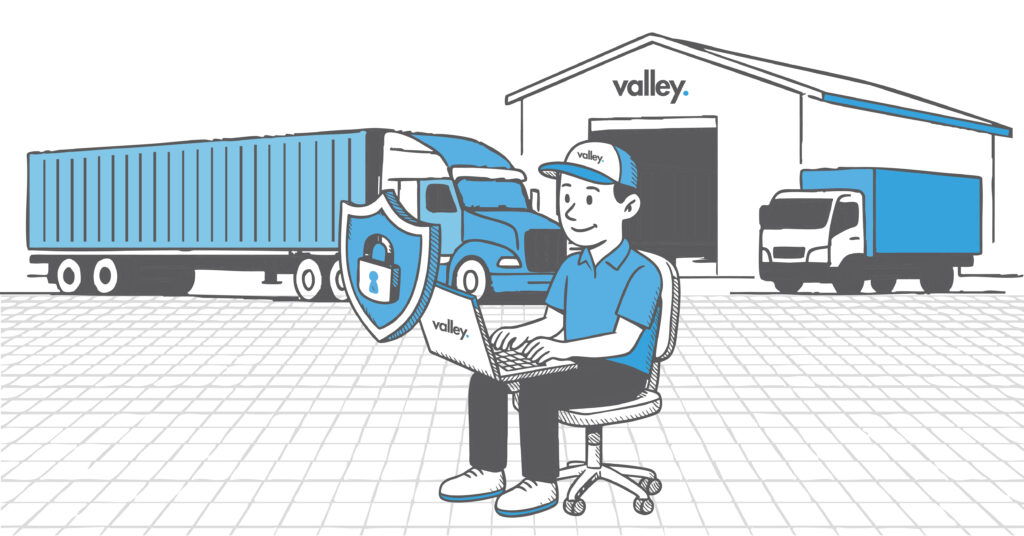Cybersecurity in Logistics: Protecting the Operations You Can’t See

Logistics now runs on data as much as diesel. Route planning, payment processing, and customer tracking all depend on connected systems. This digital shift has made the industry faster and more efficient, but it has also opened a door to new risks. One cyberattack can shut down operations, damage trust, and cost fleets millions.
Quick Answer
Cybersecurity in logistics is no longer optional. Protecting systems from cyber threats is just as important as maintaining trucks. Fleets that train employees, secure their systems, and prepare response plans can avoid major losses and gain stronger trust from insurers and clients.
When Cyber Risk Becomes Reality
Cyberattacks are not rare, and their impact can be devastating.
In 2022, a mid-sized freight brokerage suffered a ransomware attack that shut down operations for three days. The recovery costs, lost contracts, and penalties reached more than $400,000. In another high-profile case, a global shipping company’s systems were frozen for weeks, with losses in the hundreds of millions.
These events prove a clear point: cyber incidents can cripple logistics companies just as severely as collisions or cargo losses.
According to Reuters, cyberattacks on transportation and logistics firms have surged as digital adoption accelerates. Attackers now target everything from warehouse management systems to electronic logging devices.
Steps Every Fleet Can Take
Strong cybersecurity does not require a big IT department, but it does require consistency and discipline. Every fleet can protect itself by applying a few core practices.
Train Employees
Most cyberattacks begin with phishing emails. Short, regular training sessions teach staff to recognize fake links and suspicious attachments.
Use Multi-Factor Authentication
Adding a second login step, such as a code or mobile app, prevents many password thefts.
Back Up and Test
Keep secure backups offline or in trusted cloud systems. Test them regularly to confirm they can be restored quickly.
Patch Systems Quickly
Many breaches exploit outdated software. Regular updates close known vulnerabilities before attackers can use them.
Segment Critical Systems
Separate routing, finance, and customer databases from general networks. That way, one breach cannot spread across your entire operation.
Vet Your Vendors
Ask IT providers, carriers, and brokers about their cybersecurity standards. One weak link can expose your entire supply chain.
Create an Incident Response Plan
Plan who isolates systems, who contacts clients, and who coordinates recovery. Practicing these steps in advance avoids confusion when every minute counts.
The Cybersecurity and Infrastructure Security Agency (CISA) advises companies to start with these same fundamentals, calling them the “most effective first layer” of defense for small and mid-sized fleets.
Cybersecurity as Risk Management
Cybersecurity should be treated the same way fleets treat maintenance and safety. Digital systems keep trucks moving, handle customer data, and manage payments. If they fail, operations stop.
As Industrial Cyber notes, insurers increasingly assess cybersecurity during policy renewals. Fleets that demonstrate strong digital protections can qualify for better rates and coverage terms.
This shift means cybersecurity is not only about preventing attacks, it is about managing financial and operational risk.
Turning Protection Into Confidence
The goal of cybersecurity is not just to block hackers. It is to ensure business continuity, protect client trust, and build leadership confidence. When systems are secured, fleets can focus on service, growth, and innovation without fear of disruption.
Treat cybersecurity with the same discipline as fleet safety. Every password, update, and policy adds a layer of protection for your people, your clients, and your margins.
FAQs
Why is cybersecurity important for logistics?
- Because digital systems control routing, payments, and tracking, if compromised, they can shut down entire operations.
How can small fleets improve cybersecurity affordably?
- Start with employee training, password policies, and secure backups. Small actions make big differences.
Do insurers reward fleets with strong cybersecurity?
- Yes. Insurers now view cybersecurity as part of a company’s risk profile and may offer better coverage or pricing.
What is the most common attack on logistics companies?
- Phishing and ransomware remain the top threats because they rely on human error and outdated systems.
How often should cybersecurity be reviewed?
- At least quarterly, and after any major system or software update.
Final Thoughts
Cybersecurity is now as essential to logistics as fuel and maintenance. Fleets that take it seriously protect not only their data but also their reputation and profitability.
Building strong cybersecurity in logistics starts with awareness, planning, and discipline. The companies that make it part of daily operations will be the ones that keep freight and business moving safely into the future.
Start with the basics today. Review your passwords, schedule staff training, and back up your critical systems. The more layers of protection you build now, the less you will lose later. Cybersecurity is not just IT, it is business protection.
Smarter Coverage. Real Support. No Hassle.
